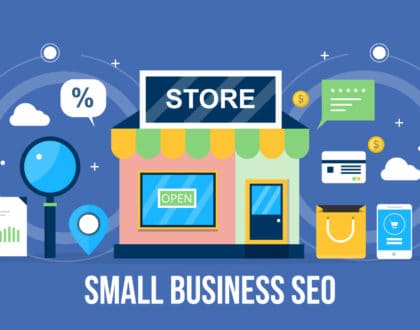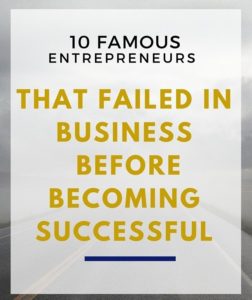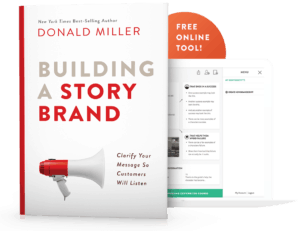11 Ways Creative Marketing can Boost New Business

The numbers are enough to scare anyone.
The failure rate of businesses over the 5-year mark is a little over 50%. You never planned to be part of that number, but maybe things aren’t looking so great in year two or three.
A lot of factors you can’t control contribute to your business’ success or failure. One thing you have a lot of control over is your marketing.
The question is, are you leveraging creative marketing?
The writing has been on the wall for a long time that ad-based marketing is losing effectiveness and Millennials dismiss it entirely. That means you need something new to get the job done. You need a creative edge.
Let’s dig into this and see how creative marketing can boost new business.
Are You Social?
Effective social media marketing almost needs to be creative marketing by definition. The essential limitations of the platforms often demand it.
You MUST be creative to say anything compelling in a 140 character tweet. Bad images won’t get much traction on Pinterest, especially if they’re business oriented.
Yet, with billions of people logging onto social media juggernaut Facebook, you can’t afford to ignore it.
The upside to these sites is their sheer audience size. They do you the favor of announcing their interests with boards, groups, and hashtags. You only need to tap a tiny fraction of these users with some creative marketing to see customer conversions.
The real gold standard, though, is user-generated content. There is simply no substitute for seeing real people using your products in pics and videos.
A more mundane, but valuable byproduct of social media accounts is that they’re an ideal place to share links back to your website.
Contests
Contests aren’t creative on their own. At their core, all contests consist of people performing some action and a few of winning something.
Much like a good novel, the details are what matters.
You can turn contests into business-boosting, creative marketing tools. The simple existence of the contest gives you an excuse to generate some content that features your keywords.
Contests tend to generate their own word of mouth, which gets your business mentioned out in the wild. That’s always a good thing for traffic and sales.
The real opportunity is in the action you ask people to perform. This is the ideal scenario to get user-generated content. You ask for pictures or video of people using your product, with the best one winning a free version or subscription of your latest product.
You can have some fun with this. You could ask for videos of people using your product in odd places (within reason), or wearing the zaniest outfit. If you really want to drive some traffic, ask for pictures of people’s pets “using” your product or service.
Pets using anything is Internet catnip. Plus, it draws an instant connection between your product and the affection people have for their pets. That emotional association makes your product more appealing the next time a buying decision is on the table.
Put all of that together and you’ve got a recipe for boosting new business.
Content, Content Everywhere
Content marketing is an SEO necessity.
It’s also a prime and underutilized candidate for creative marketing efforts. Blogging is one of the big hitters in content marketing, but it’s often dealt with in isolation from everything else.
Some of this is because blogging gets outsourced so often, but some of it is simply a lack of ingenuity. Take this as an example.
You run a flower shop, so you write a blog post about arrangements and throw in a few pictures. The post exists in isolation.
A way to get creative with it and drum up some extra business is to write that blog post and link to a video on your site that demonstrates some of the concepts. The video, in turn, links to your product page for a video course on creating arrangements for different occasions.
This setup creates internal linking on your site, which helps boost your page rank. Video content also boosts your SEO while helping to keep visitors on your site. Finally, it leads them to a paid product.
The automated nature of the course makes it almost pure profit with virtually no additional work on your part. You also cement your status as a pro, which leads to more sales.
Failing Upward
Creative marketing is risky. One of the risks is failing.
The problem is that too many entrepreneurs live in terror of failure. Failure is unavoidable. Some ideas just aren’t going to catch fire.
The upside of failure, the side most people ignore, is that it gives you insight. Failure tells you what the market doesn’t want. That’s enormously valuable.
Just as important for marketing purposes, you generally get more than one opportunity to try. If your particular approach doesn’t generate the kind of heat you expected, it means you aren’t hitting the right emotional buttons.
A series of failures can lead you to the right approach. Don’t let the potential or reality of failure derail you.
Fail.
Learn.
Succeed.
Creative Marketing through Organizing Events
As an entrepreneur, you’ve almost certainly attended business-related events.
There’s plenty to choose from. You’ve got seminars, conventions, and straight up networking events. You meet a lot of people, learn something useful and collect business cards
Have you ever considered organizing an event?
Yes, it’s a lot of work to organize a good event. That’s why more people don’t do it, but many who do use eventbrite. It helps create a mind-blowing marketing experience for everyone.
People who wouldn’t take on the hassle of organizing an event are happy to show up and give a talk at one. It’s a chance to, let’s be honest here, show off a little and pitch their service or product. Once they agree to appear, though, they want a good audience as much as you do.
Marketing opportunities fall from the sky at this point. You can develop all kinds of content around the event, from blog posts to videos, and you get to name drop your guests.
You can work up a set of emails, social media posts, and even some digital artwork for guests to send out and use. They might not all use it, but a lot of them will.
Why? You did the work for them and it’s easy.
What does all of that content have links back to? Your website’s page on the event.
That boost in traffic sure won’t hurt your sales or your SEO efforts if you’ve optimized properly.
Then there’s the actual content delivered at the event. You can record all of it in video and audio formats and use it for podcasts or YouTube posts. Just be sure to get permission from your guest speakers to use the content.
Boom! More traffic flowing your way. That’s a big marketing return for your time and effort.
Visual Storytelling
Let’s be clear up front. I’m not talking strictly about video content. Anything visual counts here.
Storytelling is the key. If you’re thinking you can’t tell a good story with just a picture, imagine this.
A little girl stares sadly down at an ice cream cone on the ground. There’s a whole story there in a single image. The viewer fills in the little details, but everyone comprehends the essential story.
Storytelling is as old as humanity and it lets us connect with others. This is where the creative marketing comes into the picture. It’s not enough to tell a story.
You need to tell the right story.
Have you ever seen those slick marketing videos about businesses that talk and talk about the product? Of course, you’ve seen them. Can you think of a specific one?
How about one that features one person talking about how a life-changing event led to them starting a business. You probably remember those people and their business by name.
The right story isn’t always going to be some tear-jerker, but it needs to speak to something human. Visual content that achieves that drives traffic. Traffic drives sales.
For more help on how to tell the best and more captivating stories, check out how to clarify your message. Here is a great book that comes highly recommended, Building a Story Brand.
Everyone Advocates
Entrepreneurship means a lot of work.
You have to balance product or service development with employee schedules and finances. It can easily turn into 100-hour weeks. That explains why internal marketing gets overlooked so often, but it’s a critical mistake.
If your employees don’t fully understand the brand and products, how can they be expected to represent the brand and products in the right way? Your own employees could be eroding your brand every time they talk to a customer.
Taking the time to get everyone on the same page turns everyone into a functional brand advocate. Whether a potential customer talks to your bookkeeper or your web person, they get the same story. This reinforces the brand.
It also means that they’ll be communicating that story and those values in all contexts from dinner to blog posts. Assuming the brand and values resonate, existing customers will pick up on the story and communicate it for you.
This consistency will help direct potential customers who look for those values in your direction.
This is one of those cases where creative marketing is a matter of doing what other businesses are failing to do effectively.
Get Lean
“Just a second,” you say, “Isn’t lean all about management and product iterations? That’s not about marketing.”
Well, you got the first part mostly right. Lean is a toolbox for reducing risk on your way to the marketplace with a product. It’s also naked and creative marketing.
Stay with me here. You start out with your minimum viable product and get in the hands of customers. Those customers then give you feedback.
Sounds like a fantastic focus group, doesn’t it? You get to see what people like, don’t like, and what they wish the product did. Then you implement fixes and improvements.
The cycle repeats.
Now, unless you’ve got a group of customers composed entirely of hermits who shun social media, they’re going to talk about it. They’ll talk about the product with colleagues and peers who might want to try it.
In essence, this first group of customers will help to create the buzz that makes the product sell later. You can even formalize that relationship with a referral marketing program.
All of that will help boost your early sales.
Equally important, all of that feedback gives you a huge well of source material for shaping future marketing efforts. You can look for patterns of approval in the feedback and focus marketing collateral in that direction.
Influence
You probably have a go-to person who you trust for advice in your field. That person may be an acquaintance or may be an expert that you follow online.
If it’s the latter, that person is an influencer for you and probably lots of other people. So, what’s the point?
You can become an influencer. If it sounds preposterous, it shouldn’t.
Becoming an influencer doesn’t require you to be the absolute expert on a topic. It simply means that you offer sound advice to a segment of people in your field. There’s no reason you can’t cater to beginners.
The road to becoming an influencer isn’t complicated. You write blogs or white papers, shoot videos, and tailor the content to your intended audience.
This functions as creative marketing because it’s not marketing in the traditional sense. You establish yourself as someone who knows their business. That makes you more attractive to potential customers.
It also offers a road to a secondary income stream from your audience in the form of books, events, and video or audio content.
You also get to use excerpts from that content on your website to help keep things fresh and deepen the content offerings. If you allow comments, you get to double dip on the SEO advantages by interacting with anyone who leaves a comment.
What’s Your Purpose?
This particular approach isn’t for everyone, but aligning yourself with a cause can help to boost business.
The stumbling block here is that the relationship between your business and the cause must read as authentic. It needs to be baked into the DNA of your business, or it can’t work.
For example, no oil company can realistically sell itself as aligning with environmental causes. On the other hand, an engineering firm could easily align itself with the cause of high school STEM education.
If you can make that authentic connection, it opens up creative marketing opportunities. You can sponsor or co-sponsor related events, which creates content marketing opportunities. It also allows you to make the cause part of your brand message, which will attract new customers who care about the cause.
Use the News
News feeds can be your best friend.
You don’t need to rely on your own brain for every avenue of creative marketing. You can co-opt someone else’s news presence to create opportunities.
There is constant news of one big brand or company doing something absurd or ridiculous. You can capitalize on that by offering the solution or using it to differentiate yourself.
Say a big competitor in your field has an epic customer service fail. You make a video showing five ways your customer service people would handle it better. Your video is likely to get traction based on the high profile nature of your competitor’s failure.
The differentiation makes you more appealing and can help pull customers to your business.
Parting Thoughts
Getting traction for your new business can be difficult, but creative marketing can smooth the way.
It helps to humanize your business or demonstrate your commitment to a cause. It lets you have some fun and people like participating in things they see as fun.
Creative marketing also provides an avenue for differentiating yourself from less customer-oriented competitors. When done right, it also goes a long way toward burnishing your SEO cred.
California SEO Professionals specializes in custom SEO strategies for entrepreneurs and startups. If you aren’t seeing the online results you’re looking for, contact us today.
Recommended Posts

15 Most Important SEO Tips for Higher Rankings in 2024
March 12, 2024

Be Seen, Be Found: Supercharge Your Small Business with SEO
February 28, 2024




